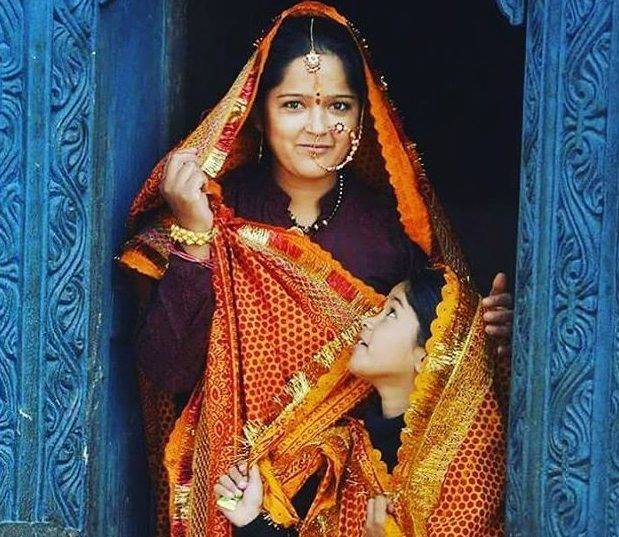The tradition of Bhitauli has been going on for centuries in Kumaon
Haldwani. ‘Bhitauli’ literally means offering. This tradition, which has been going on since ancient times, was of great importance in that period. Through this, there was a meeting of siblings, because at that time there was no other facility of communication. Through Bhitauli, the parents also got the well-being of the married women.
Every year in The Kumaon division of Uttarakhand, on Chaitra, a father or brother from the maternal side takes a bhitauli for his daughter/sister and goes to her in-laws’ house. Even today in the hilly region, women are given bhitauli in chait. Women are eagerly waiting for the centuries-old Bhitauli tradition. This tradition dedicated to the women of the mountain expresses the feelings and feelings associated with the woman’s maternal home. Although this tradition is decreasing after the changing nature of the mountain, availability of telecommunications, increased facilities of transportation, but this tradition is alive in the old form in the hilly areas of both the divisions of the state.
26-year-old Hema Bisht got married to Govind Bisht, a resident of Haldwani Gorapadav, two years ago. His maternal uncle is Garampani Almora. He is waiting for his second bhitauli. He says that the parents had come to give traditional bhitauli last year too. Manju Rawat of Bhotia Padav says that for 20 years, the parents have been coming to give bhitauli in every chait. In today’s time, he talks to his parents on the phone once or twice a week, but he is eagerly waiting for Bhitauli.
What is Bhitauli?
Bhitauli generally means to meet. Due to the odd geographical conditions of Uttarakhand, lack of resources in old times, busy lifestyle, married women did not get a chance to go to their parents for years. In such a situation, through the Bhitauli celebrated in Chaitra, the brother used to go to his married sister’s in-laws’ house and meet her.
He used to reach her in-laws’ house with a gift. This unbreakable love, union of brother and sister is called Bhitauli. This age-old tradition is carried out. It is celebrated throughout the month from Phuldei on the first day of Chaitra.
Description is also found in folk songs and folklore.Uttarakhand also gets to hear folk tales, fables related to any Teej festival. Similarly, folk tales, folk songs, fables associated with Bhitauli are described. Brijmohan Joshi, the famous folk painter of Uttarakhand, explains that many folk tales, fables related to Bhitauli are prevalent. In this, the fable of Goridhana is very famous, which tells the immense love of sister and brother.
In this, in Chaitra, the brother goes to give bhitauli to his sister. When he reaches the sister’s in-laws’ house after a long journey, he finds the sister sleeping. The next day is Saturday, without meeting him, he returns with the gift. Due to her sister’s sleep, she could not meet her brother. In repentance of this, she sacrifices her life by saying ‘Bhai Bhuno, Main Siti Bhai Bhukho, Main Siti’. Later, she became a bird and says the same lines. Joshi explains that even today a bird sings this song in Chaitra.
Folk tales and traditions are losing existence due to changed lifestyles
With the change of modern lifestyle, today folk tales, folk songs depicting the tradition and culture of the mountains are dying. Brijmohan Joshi explains that after the change of lifestyle, the tradition of Bhitauli has also been forgotten or changed. It is said that in the old times, when the brother used to go to the sister’s in-laws’ house to give bhitauli, he used to take many gifts and especially dishes and there was a festive atmosphere when his sister reached home. The dishes brought by him were distributed throughout the village. Nowadays, Bhitauli has become a mere formality. Nowadays, money is sent to daughters and sisters from the maternal side in the form of bhitauli.











